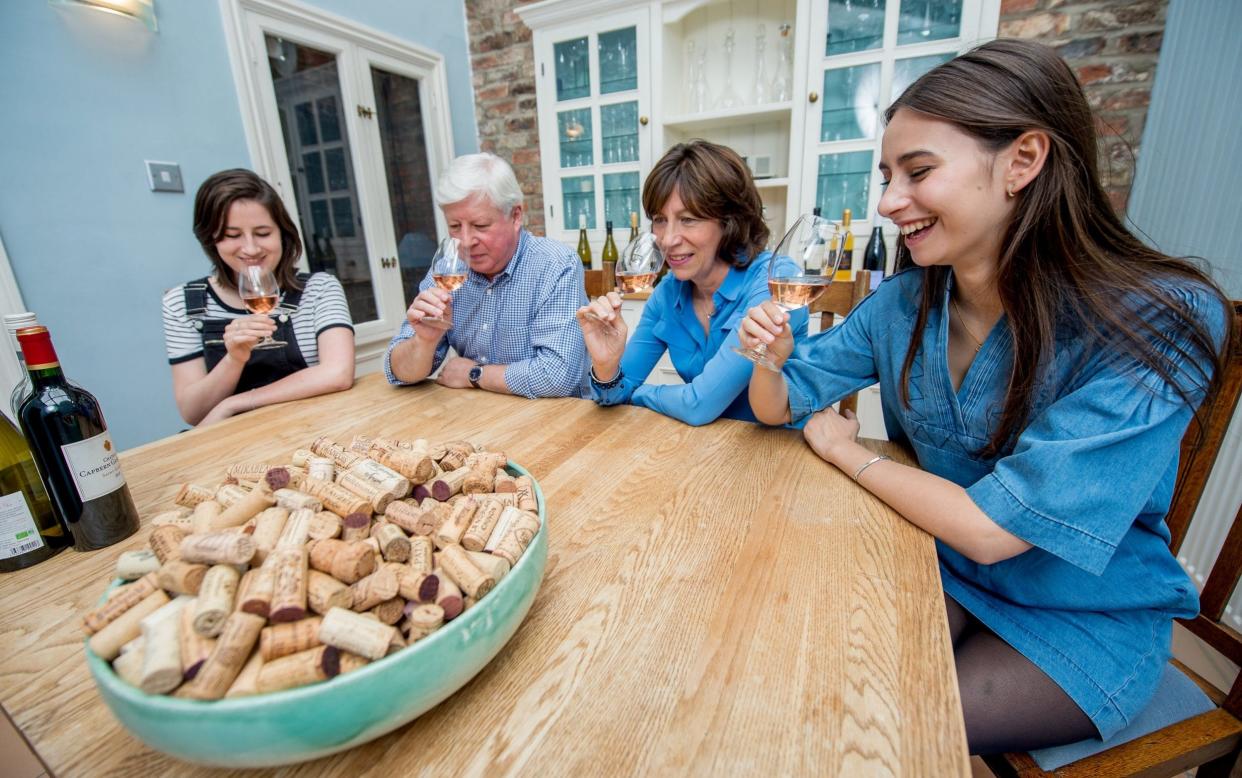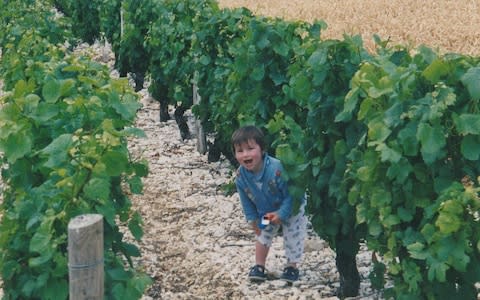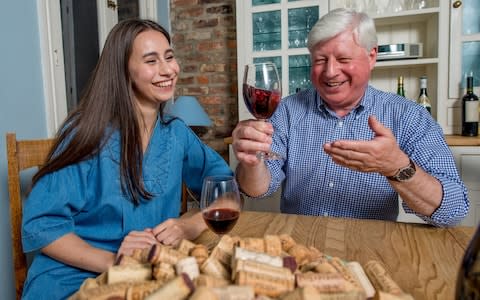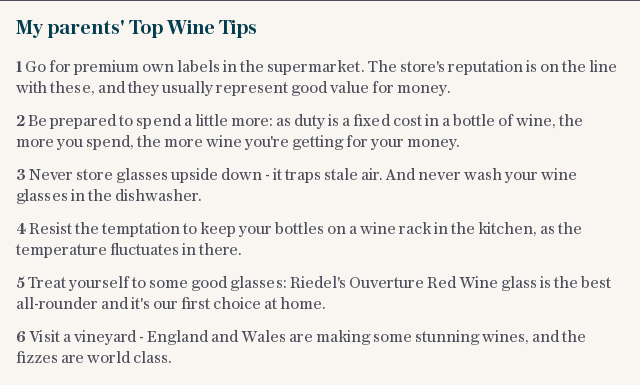My parents are wine experts: can they teach me to be a taster, not a drinker?

I owe my existence to a bottle of green cognac, and a batch of bad oysters. Let us start with the cognac: a vintage 1953 cognac. Barrels of the divine stuff had been sent to a wine shipper in Liverpool, to be bottled before it could be sold. The year was 1983.
Unfortunately, during the bottling process the cognac was contaminated with iron, causing flecks to turn the liquid green. So a representative from the wine shipper travelled to North Yorkshire, cap and cognac in hand, to explain to the original owner what had happened. This spokesman was my father.
Now, the oysters. Dad was due to deliver the cognac on a Saturday morning. But being an adventurous man, he had on the Friday night consumed many oysters grown in the Liverpool Docks, and was consequently indisposed all weekend. When he eventually arrived on the Monday morning he was "pale and interesting" - at least according to my mother, who sat behind the reception desk Monday to Friday.
She was an ingénue of the wine world, the first female president of Bristol University's wine society. He was a tall, well-travelled wine merchant. The clincher, however, were the letters after his name: MW, or Master of Wine, the most prestigious qualification in the world of wine.

Only 369 people in the world hold this title. More people have been into space. It takes years of study, culminating in a gruelling four-day examination process with wine tastings in the mornings, and written papers in the afternoons. From just a sniff, you will be able to identify not only a grape variety (chardonnay, syrah...), but the vineyard the grapes were grown in. You must be at once a geographer, a historian, and an explorer. It also helps to be genetically blessed with an excellent palate and a prodigious sense of smell.
Almost 10 years after Dad handed her the bottle of green cognac, Mum "passed the MW", too. Shortly after that, a cork popping from a bottle of vintage Bollinger heralded my arrival. And so, with two world experts for parents, should have begun a lifelong love affair with wine.
I understand people who say "I know what I like", but there's so much more to discover
My parents tried their best. One of my earliest memories is of my mother asking me to close my eyes during bath time, and identify by sniffing whether she was using the strawberry or the melon scented shampoo. A family holiday included long drives through the wine regions of France; picnics on the chalky earth of Champagne. My sister and I, however, quickly grew bored with what we saw as our parents' eccentric ramblings, as they happily rhapsodised about grape varieties.
Fast forward to the present day, and I have had a revelation. My generation is known for necking, rather than savouring, its alcohol. But millennials are growing up and becoming increasingly interested in fine wining, dining, and learning where their produce comes from, and are discovering, like me, that they have no clue about the wine they've long been guzzling.
So for one evening here I am, the prodigal child returned to the family nest (and cellar) to learn about wine. We sit down around the dinner table for a blind tasting, meaning that I have no idea what type of wine goes in each of the glasses my parents place in front of me. "There's a routine," Dad explains. "You pick up a glass. You look at it. Swirl it, to release the smells. Sniff it. Look at it again. Sniff again. Taste. Spit."

I clumsily begin swirling my glass before taking a small sip. Swallowing during tasting is a definite no.
I take a sip of the second wine and pull a face, denouncing it as too acidic. Dad, however, instructs me to taste a mouthful of fresh crabmeat, and then take a sip of the second wine (a Jean-Marc Brocard chablis) with it. The combination is sweet and sublime, neither taste overpowering the other: a classic food and wine match.
Of course, some wines are more memorable than others. I started this article with a love story, and apparently, wine tasting should be exactly that: like falling in love.

"You never know until it happens," explains Dad. "You will suddenly taste a wine, and it tastes exactly like it should, but it's got that extra dimension that just pops up and you think, that is magic." He describes a 1928 champagne that "you'd think would have been awful, but it was like nectar".
Mum's first lightning bolt moment came whilst sipping a 1967 Ducru-Beaucaillou (a Bordeaux Cru Classé). "It wasn't a question of me then describing it - it just talked to me. Everything was so much in balance."
For many, the part that most people get hung up on is describing the wine. "If I'm teaching, I say people have to make up their own tasting language," Dad says. "New Zealand sauvignon blanc used to smell of gooseberries. These days, however, some people have never tasted gooseberries, so they have to make up a word for what you know to be gooseberry." Both advise, "the difference between drinking and tasting is just a few seconds to remember your impressions". If you prefer not to carry around a notebook, they suggest Instagramming the bottle - anything to help you remember the taste.

"I understand people who say I know what I like and I like what I know," Mum says. "That's safe. But there's so much to discover".
I'm starting to understand not only the building blocks of tasting wine, but also my parents' dedication to it. Wine is culture and geography. It stimulates conversation not just in the ways we all assume, but also through its history, and the vocabulary needed to explain why a sip of 1928 champagne is so epochal. Any idiot can drink. Tasting, however, is something else: a skill, and one that I've neglected too long.
Now for the final glass. I dip my nose down and inhale... a familiar scent. "Isn't that a sauvignon?" I say, scarcely believing my luck. My parents exchange a look most parents will reserve for when their offspring announces their intention to become a doctor.
Perhaps there's hope for me yet.

 Yahoo News
Yahoo News 
